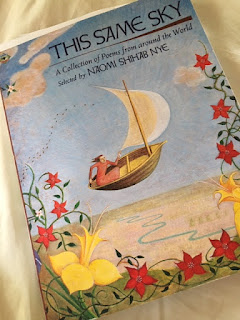Book #62 of 2019 was Michelle Obama's book
Becoming. I also got to participate in a very fun discussion group about the book - unfortunately before I'd read it. It was taking forever for my name to work its way to the top of the holds list at the library, but finally I got it in the mail from a new friend! I enjoyed reading it immensely.
Book #63 was
How We Learn: The Surprising Truth about When, Where, and Why it Happens, by Benedict Carey. This was for my summer professional development reading, and I found it interesting, counter-intuitive, and encouraging.
Book #64 was
Master and Commander, by Patrick O'Brian. My brother couldn't stop raving about this series, so I decided to give it a try. The nautical terminology is way over my head, but my brother promised that if I just kept reading, soon that would become like background noise and I would be focusing on the main point of the stories, the relationships of the characters (always the part I like best about stories anyway). This seemed to be starting to happen. Now I'm ready to read the second book, but all I can find at the library
is the audiobook, so I'm not sure I'll continue right away.
Books #65 and
69 were books I was reading aloud to my husband, and with some extra time over the summer we were able to finish both. The first was
Beautiful Country Burn Again, by Ben Fountain, which is about the 2016 election, and the second was
The Great Santini, by Pat Conroy. If I'd been reading the latter by myself, I would have given up early in the book. Although it is well-written (if somewhat floridly), I found the racism, misogyny, and abuse difficult to read about.
Book #66 was
Maybe You Should Talk to Someone: A Therapist, HER Therapist, and Our Lives Revealed, by Lori Gottlieb. I found this fascinating reading, both because of the individual stories involved and because of the insights into how therapy works.
Book #67 was
The Body Keeps the Score: Brain, Mind, and Body in the Healing of Trauma, by Bessel van der Kolk. I knew that this book was about trauma, but I was not expecting it to be as wide-ranging as it is. Particularly interesting was the section on shell shock/PTSD and the history of how the military has dealt with it. I appreciated the insights into how mind and body work together and how trauma affects people long-term. I also liked how research-based this was and how much hope there is for the future as professionals learn more and more about this topic.
Book #68 was
The Sweetness at the Bottom of the Pie, by Alan Bradley, the first book in a series about eleven year old Flavia de Luce. This was entertaining reading.
Book #70 was
Maisie Dobbs, by Jacqueline Winspear. Maisie is a private investigator. The first novel in the series is set in 1929, and in it we learn about Maisie's current cases, but also about her past, and how she went from being a maid to a university student to a very clever investigator.
Speaking of clever,
book #71 was extremely cleverly written. It was
Elizabeth is Missing, by Emma Healey, and it's the story of Maud, who suffers from dementia. It's hard to know which aspects of the story she is imagining, and which ones are really happening. Is Elizabeth really missing? And what about Maud's sister Sukey?






